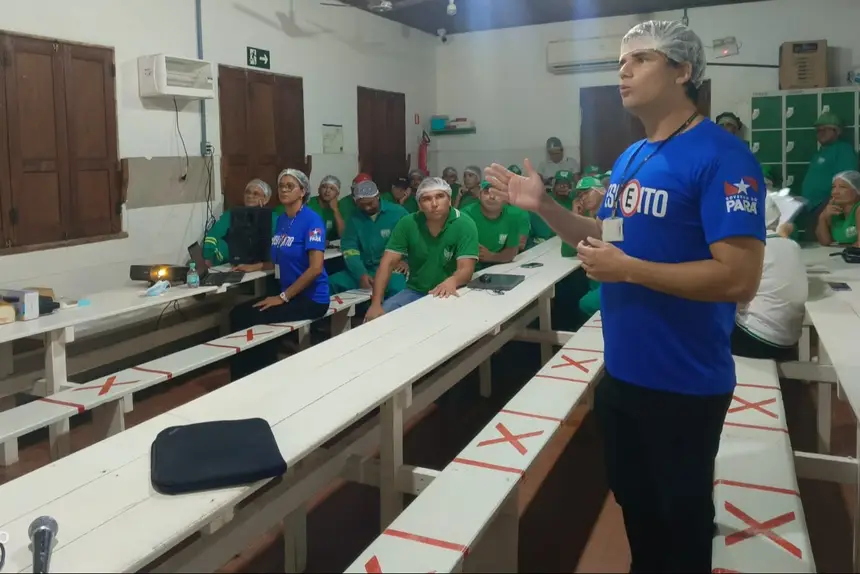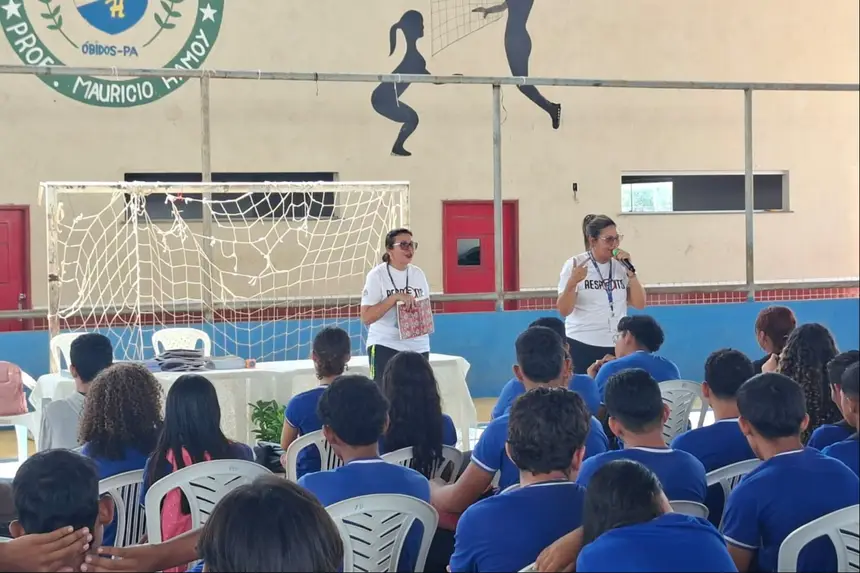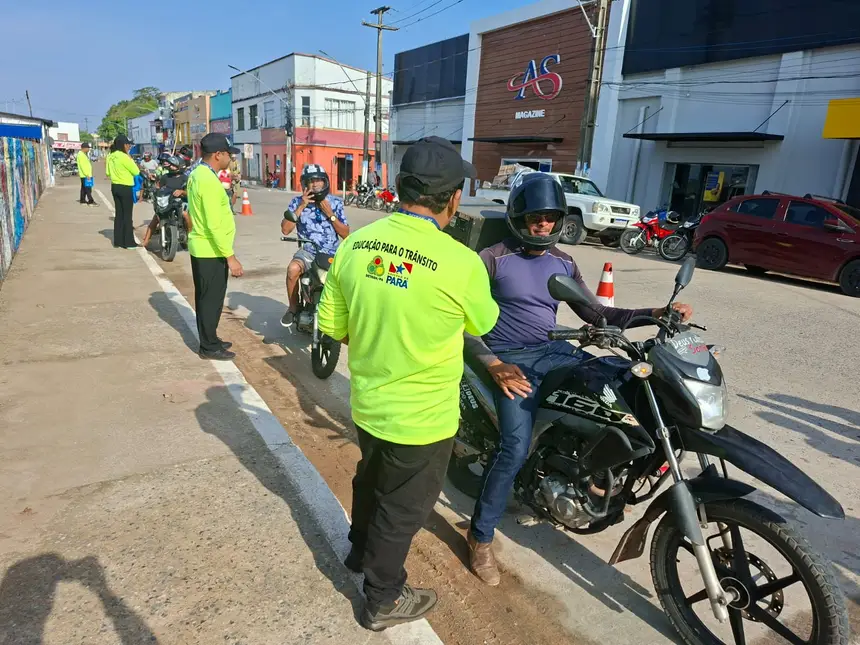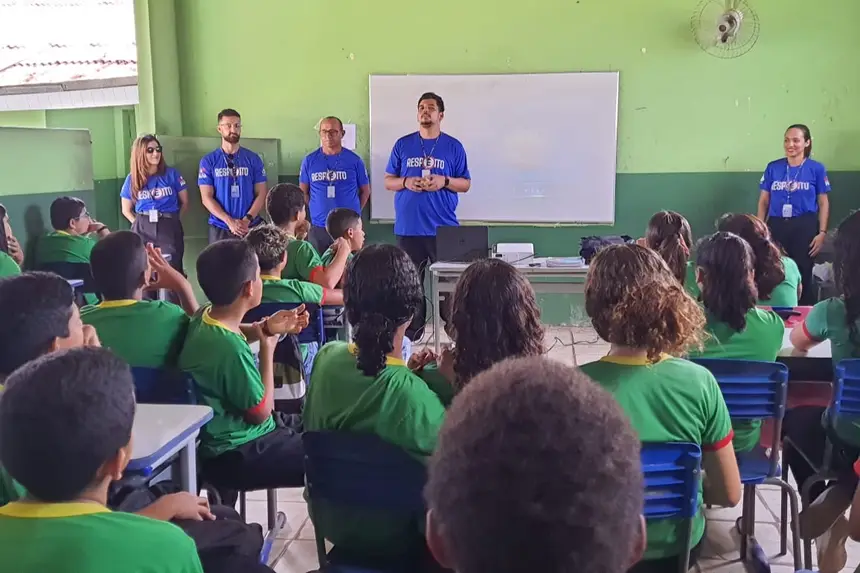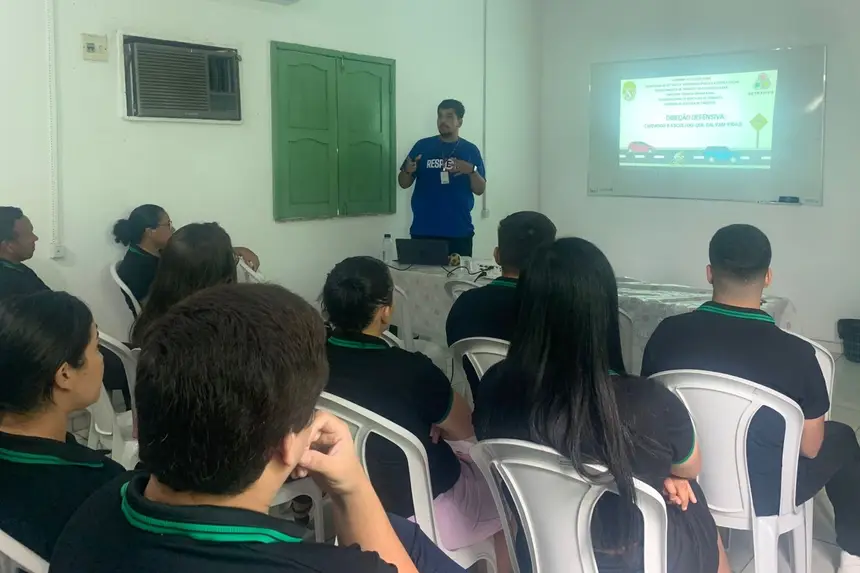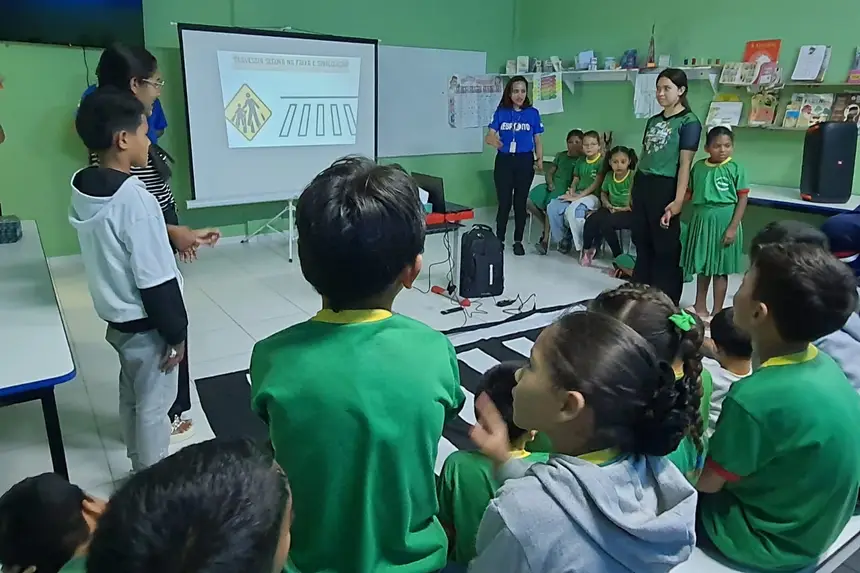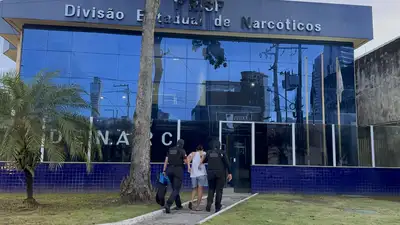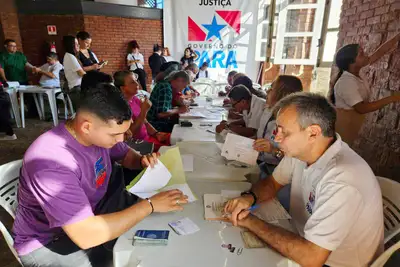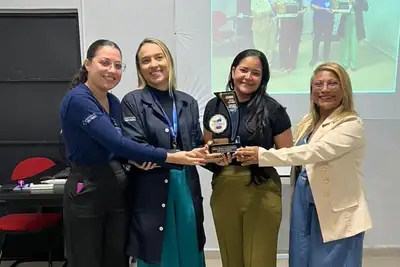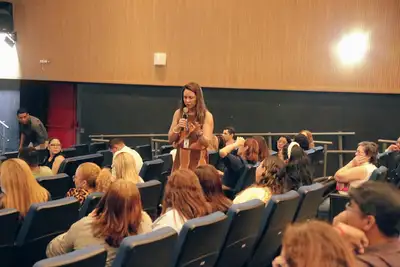Detran conducts educational actions in Peixe-Boi and Óbidos
Detran's actions continue until October 7, raising awareness and educational practices for pedestrians, cyclists, and drivers
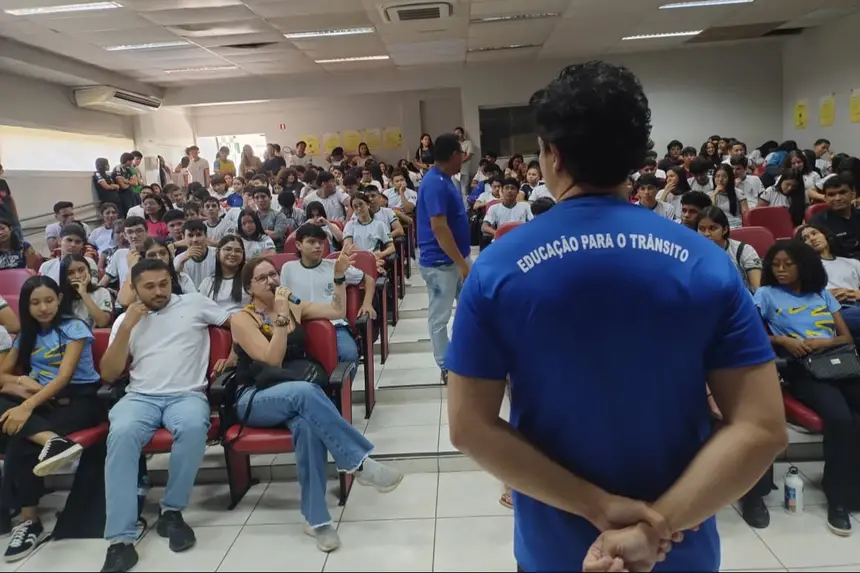
The State Department of Transit (Detran), through the Traffic Education Coordination, is intensifying educational activities in the interior of the State. Since last week, the municipalities of Peixe-Boi, in the northeast region, and Óbidos, in the Lower Amazon, have been receiving various actions on roads, schools, companies, and communities.
In Peixe-Boi, the mobilization is intensified in schools. The education team conducts a dialogued lecture and an interactive quiz, addressing the five main risk factors in traffic and safety guidelines aimed at pedestrians, cyclists, and motorcyclists. “The highlight is the encouragement of helmet use, one of the main demands observed in the municipality. So, this is our focus, to raise awareness among the local population to use this equipment and avoid serious accidents,” explains Detran education agent, Lucas Aguiar.
The activity in schools has already involved more than 130 people, including students, teachers, and school managers. During the action, Detran education agents distribute educational materials, such as the Detranzinho story magazine and the Learning Game, aimed at playful learning and citizenship formation.
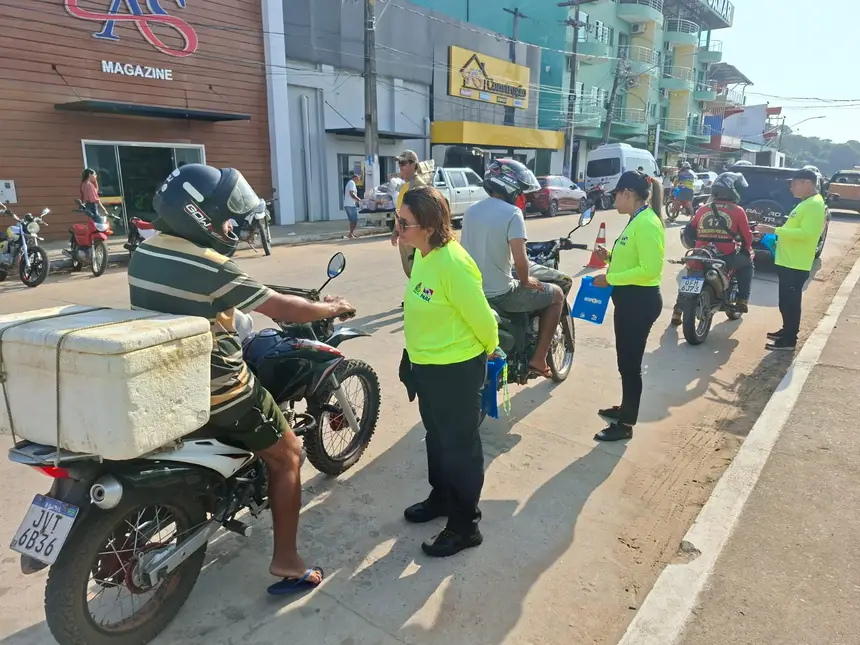
In the municipality of Óbidos, the actions began at Prof. Maurício Hamoy School, with guidance for more than 100 people, including students and teachers. During the lecture, general traffic safety tips and the main risk factors for accidents were discussed, emphasizing individual and collective responsibility for a safer, more accessible, and sustainable traffic.
In addition to the lectures, education agents are working on the busiest roads and in communities farther from the center, in partnership with the Demutran of Óbidos, promoting educational approaches and dialogue with residents. The goal is to reinforce defensive driving practices and reduce the number of traffic occurrences, especially in areas with greater vulnerability.
According to education agent, Cesar Mayrinck, the results in Óbidos are already noticeable. “Residents are participating and showing understanding of the importance of adopting safe behaviors. Even in places where helmet use is already more common, we reinforce details, such as proper fastening and attention at intersections, which still record frequent accidents,” he highlighted.

The actions are supported by the Municipal Secretariats of Education, the City Hall of Óbidos, and the State Secretariat of Education, and are part of the set of educational initiatives that Detran has been carrying out in various regions of the State.
Through these activities, the agency seeks to strengthen the culture of road safety and stimulate responsible attitudes, contributing to the construction of a more humane, safe, and sustainable traffic for all Pará residents. Detran's actions in these municipalities will continue throughout this week.
Text: Brendo Freitas (Ascom/Detran)


